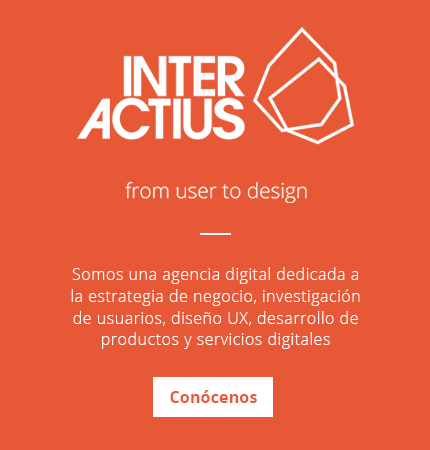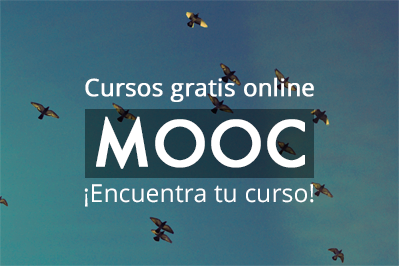
30 seconds summary
- To elevate your online presence, strategic digital marketing is key. A strong brand identity, developed with the help of a brand identity agency, ensures consistency across digital channels.
- Key strategies include content marketing, SEO, social media engagement, email marketing, and paid advertising.
- By leveraging data-driven insights, businesses can refine their strategies to increase visibility, attract quality leads, and drive conversions. In today’s competitive digital landscape, a cohesive and well-executed digital marketing plan is essential for long-term growth and success.
In today’s digital age, the way businesses connect with their target audience has drastically transformed. The rise of the internet, social media, and mobile devices has reshaped marketing strategies, and companies are now focusing on creating a robust online presence to stay competitive. One of the most effective ways to achieve this is through strategic digital marketing, which helps businesses improve visibility, engage with consumers, and foster long-term relationships.
This article explores how businesses can elevate their online presence through various digital marketing strategies, focusing on the importance of brand identity, content creation, SEO, social media marketing, and data-driven marketing techniques. We will also discuss the role of a brand identity agency in shaping a business’s digital presence and ensuring it aligns with the company’s core values and goals.
1. Understanding the Digital Landscape
Before diving into the strategies to elevate online presence, it is crucial to understand the digital landscape. With over 4.9 billion internet users worldwide (as of 2024), the digital space offers endless opportunities for businesses to reach their target market. The Internet serves as a platform for interaction, commerce, education, and entertainment, making it an essential tool for any business looking to remain relevant in a fast-paced world.
Consumers today rely heavily on the internet to find products, compare prices, read reviews, and make purchasing decisions. This shift in behavior demands that businesses have a strong and consistent online presence. A well-crafted digital marketing strategy allows businesses to communicate their message effectively to potential customers and stay top-of-mind in a crowded market.
2. Building a Solid Brand Identity
One of the first steps in elevating an online presence is defining a strong and clear brand identity. Brand identity is the visual, emotional, and cultural representation of a business. It encompasses elements such as logo design, brand colors, typography, messaging, and overall tone. A strong brand identity is essential for standing out in a competitive marketplace and creating lasting connections with your audience.
A brand identity agency can help a business develop a cohesive brand identity that resonates with its target audience. These agencies specialize in creating brand assets that communicate the values, mission, and unique selling points of a company. In the context of digital marketing, a well-defined brand identity ensures consistency across various digital channels, from social media profiles to website design and content creation.
When businesses have a clear and consistent brand identity, they establish trust and credibility with consumers. This trust can lead to improved customer retention, brand loyalty, and increased sales. Moreover, a strong brand identity helps businesses differentiate themselves from competitors and create a memorable experience for their audience.
3. Content Marketing: The Heart of Digital Marketing
Content marketing is at the heart of any successful digital marketing strategy. Content not only helps in communicating your brand’s message but also provides value to your audience. Through well-crafted content, businesses can educate, entertain, and inform their target audience, which ultimately builds trust and loyalty.
The key to effective content marketing is understanding your audience’s needs, pain points, and interests. Creating buyer personas—fictional representations of ideal customers—can help in identifying the type of content that resonates with your target market. Content types vary from blog posts, infographics, podcasts, videos, case studies, eBooks, and social media posts.
An important aspect of content marketing is search engine optimization (SEO), which ensures that your content is discoverable on search engines like Google. By optimizing your content for relevant keywords, you can improve your website’s ranking on search engine results pages (SERPs), driving organic traffic to your website.
Regularly publishing high-quality, valuable content not only attracts potential customers but also establishes your business as an authority in your industry. For instance, if you run a software development company, regularly posting articles on software solutions, coding tutorials, and industry trends can position your business as an expert in the field. This can lead to higher website traffic, increased engagement, and improved conversion rates.
4. Search Engine Optimization (SEO): Driving Organic Traffic
Search Engine Optimization (SEO) is one of the most important digital marketing strategies for businesses looking to enhance their online presence. SEO involves optimizing a website’s content and structure to rank higher in search engine results pages (SERPs) for relevant search queries. With billions of searches conducted on Google every day, ranking high for keywords relevant to your business can dramatically increase website traffic and visibility.
SEO is a long-term strategy that requires a combination of on-page and off-page optimization techniques. On-page SEO includes optimizing individual web pages by using relevant keywords, improving page load speed, ensuring mobile compatibility, and creating high-quality content. Off-page SEO involves building backlinks from reputable websites, which enhances a site’s authority and credibility in the eyes of search engines.
One of the main benefits of SEO is its ability to drive organic traffic—traffic that comes from unpaid search engine results. This is often more cost-effective than paid advertising, and it has the added benefit of being more sustainable in the long run. By focusing on SEO, businesses can establish a strong online presence and attract high-quality leads who are actively searching for products or services they offer.
5. Social Media Marketing: Engaging with the Audience
Social media has become one of the most powerful tools for digital marketing. Platforms like Facebook, Instagram, Twitter, LinkedIn, and TikTok offer businesses a unique opportunity to engage with their audience in real-time and create meaningful interactions. Social media marketing allows companies to build a community, drive traffic to their websites, and promote products or services in a way that resonates with their target audience.
A successful social media strategy involves selecting the right platforms for your business, creating engaging content, and interacting with your audience. It is important to maintain a consistent posting schedule, respond to customer inquiries promptly, and participate in conversations related to your industry. Content on social media should be varied, including images, videos, live streams, polls, and user-generated content to keep the audience engaged.
Paid social media advertising is another powerful tool for increasing brand visibility. Platforms like Facebook and Instagram offer advanced targeting options that allow businesses to reach their ideal audience based on demographics, interests, and behaviors. Paid ads can complement organic social media efforts, providing businesses with an additional avenue to generate leads and sales.
6. Email Marketing: Nurturing Relationships
Email marketing remains one of the most effective ways to build and maintain relationships with customers. By nurturing existing leads and keeping your audience engaged through personalized, valuable content, email marketing helps in driving conversions and retaining customers.
The key to successful email marketing is segmentation. By segmenting your email list based on factors such as demographics, purchase history, and engagement level, you can send tailored messages that speak directly to each segment’s needs. Personalized emails tend to have higher open rates, click-through rates, and conversion rates, making email marketing a powerful tool for business growth.
Email marketing can also be automated to send timely messages to subscribers at key stages of the customer journey. For example, you can send welcome emails to new subscribers, special offers to loyal customers, or abandoned cart reminders to potential buyers who didn’t complete their purchase.
7. Paid Advertising: Accelerating Growth
While organic strategies like SEO and content marketing are essential for long-term success, paid advertising can provide a boost to a business’s online presence. Platforms like Google Ads, Facebook Ads, and LinkedIn Ads offer businesses the ability to target specific audiences and drive traffic to their websites or landing pages quickly.
Paid advertising is a great way to supplement your organic marketing efforts and achieve immediate results. Whether it’s running a Google Ads campaign targeting specific keywords or using social media ads to promote a special offer, paid ads can help drive traffic, increase brand awareness, and boost sales.
The key to successful paid advertising is to continuously monitor performance, adjust campaigns based on data, and ensure that ads are aligned with your overall marketing strategy. Tracking metrics such as click-through rates, cost-per-click, and conversion rates helps in optimizing your campaigns for maximum ROI.
8. Data-Driven Marketing: Making Informed Decisions
One of the biggest advantages of digital marketing is the ability to track and measure every aspect of your campaigns. From website traffic to social media engagement, digital marketing provides businesses with a wealth of data that can be used to make informed decisions.
Analytics tools like Google Analytics, Facebook Insights, and email marketing software offer valuable insights into customer behavior, campaign performance, and ROI. By analyzing this data, businesses can optimize their marketing efforts, improve customer experience, and identify new opportunities for growth.
Data-driven marketing allows businesses to continuously test, measure, and refine their strategies to ensure maximum impact. This ensures that marketing budgets are spent wisely and that campaigns are continually optimized to meet business goals.
Conclusion
In conclusion, elevating your online presence through strategic digital marketing is essential for businesses looking to thrive in the modern marketplace. From defining a strong brand identity to leveraging SEO, social media, content marketing, email marketing, and paid advertising, a well-rounded digital marketing strategy helps businesses connect with their target audience, build trust, and drive conversions.
For businesses looking to take their online presence to the next level, working with a brand identity agency can be a game-changer. These agencies specialize in crafting a unique and compelling brand identity that resonates with customers and ensures consistency across all digital channels.
In the ever-evolving digital landscape, staying ahead of the curve and adapting to new trends and technologies is crucial. By continually refining your digital marketing efforts and focusing on providing value to your audience, you can establish a strong online presence that drives long-term success.









